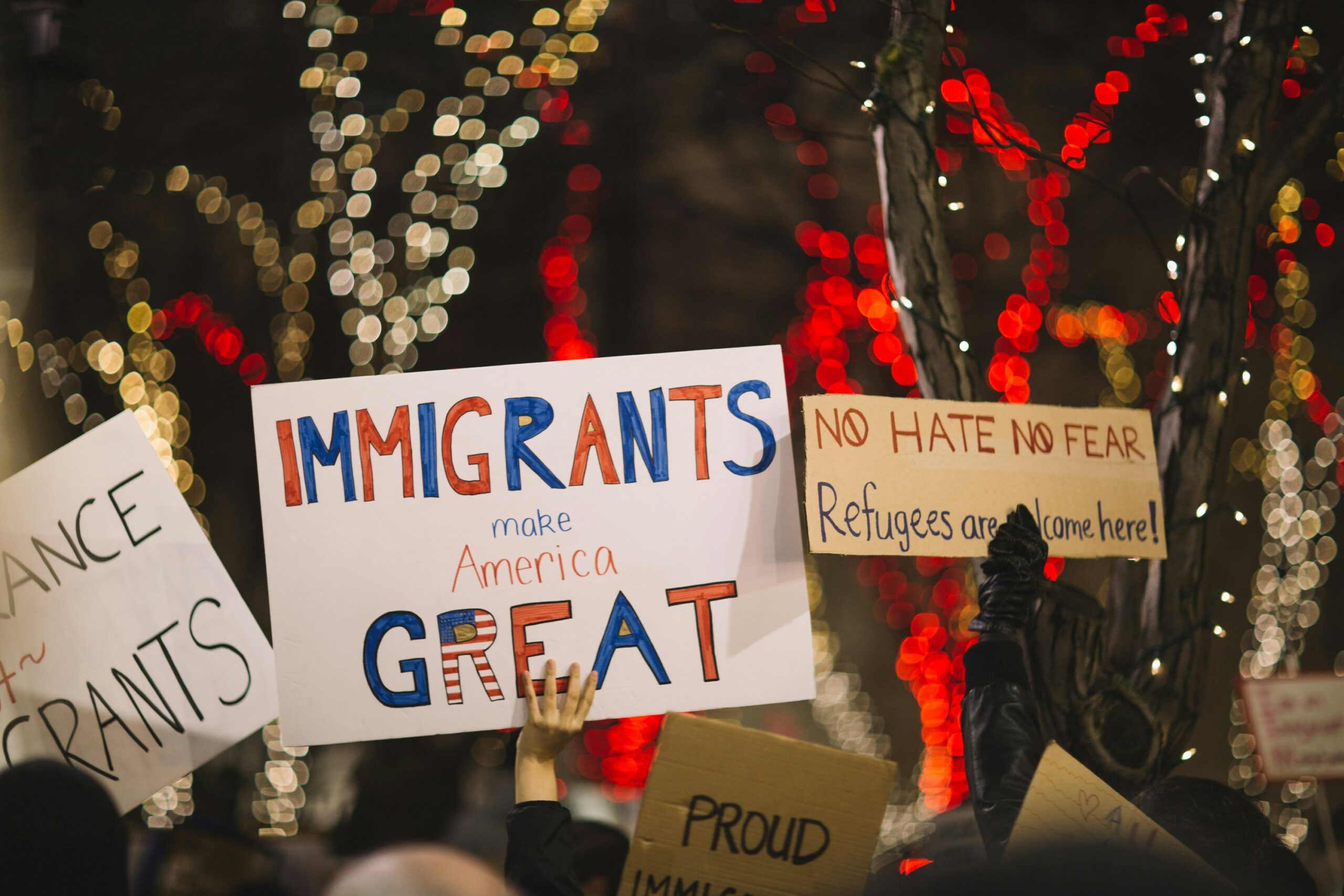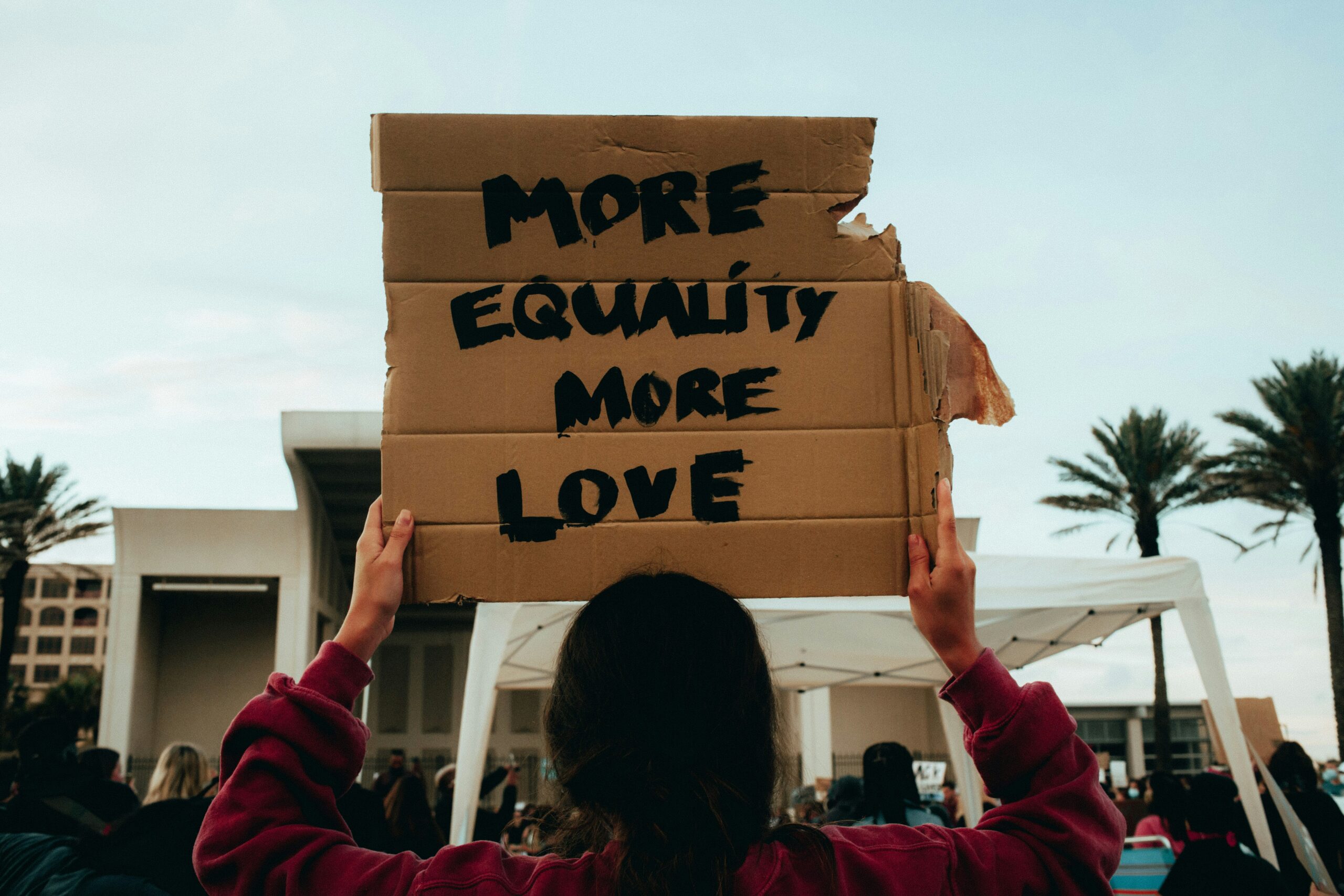Introduction to A Day Without Immigrants
A Day Without Immigrants is an annual event that has emerged as a powerful form of protest against anti-immigration policies and sentiments. First observed in February 2017, this initiative was born out of growing frustrations towards legislative measures that marginalized and targeted immigrant communities. Participants engage in a collective strike, refraining from work, school, and consumer activities to illustrate the significant role that immigrants play in various sectors of society. The event serves not only as a platform for expressing dissent but also as an opportunity to celebrate the immense contributions of immigrants to the economy, culture, and social fabric of the nation.
The primary aim of A Day Without Immigrants is to shed light on the often-overlooked impact that immigrants have within local communities and industries. This day of action encourages individuals and families to reflect on how their daily lives would be affected in the absence of immigrant labor, from agriculture to healthcare, and from hospitality to technology. By demonstrating the vital importance of immigrant contributions, organizers strive to foster solidarity among diverse groups while raising awareness of the challenges faced by immigrants in their quest for a better life.
Significantly, A Day Without Immigrants serves to counter the negative narratives surrounding immigration. It highlights that immigrants are not a burden, but rather essential members of society who offer indispensable skills, labor, and cultural richness. As the event gains traction each year, it mobilizes communities and unites activists, allies, and everyday individuals in the fight for equitable treatment and rights for all immigrants. Such collective efforts emphasize the shared responsibility to advocate for just immigration policies that recognize and honor the diverse backgrounds and experiences of immigrant populations.
Historical Context and Previous Observances
A Day Without Immigrants is a significant event that raises awareness about the contributions of immigrants to society and the economy. Its roots can be traced back to May 1, 2006, when millions of immigrants and their allies united in a nationwide demonstration in the United States. This day was marked by a call for a work stoppage, where individuals refrained from working, shopping, or attending school to emphasize the vital roles that immigrants play in everyday life. This initial observance was largely organized through grassroots efforts and propelled by community organizations focused on immigration reform.
The momentum from 2006 laid the groundwork for subsequent observances in 2017 and 2020. In 2017, coinciding with the inauguration of President Donald Trump, A Day Without Immigrants gained renewed significance. It acted as a direct response to the administration’s aggressive immigration policies and proposals to restrict immigration channels. During this event, individuals, labor unions, and advocacy groups mobilized, leading to impactful demonstrations across various cities, which highlighted the economic and social disparities that an immigration ban could exacerbate.
In 2020, A Day Without Immigrants took on a new layer of complexity due to the COVID-19 pandemic. The event was adapted to a digital arena, utilizing social media platforms to engage people unable to participate in person. This shift underscored the continued relevance of the movement in the modern context and illustrated how social media can serve as a powerful tool for mobilization and awareness. Participants shared their stories, images, and messages, reinforcing a collective narrative that emphasizes the indispensable roles immigrants hold in driving the economy and enriching the cultural landscape. As the movement evolved, it continued addressing the broader implications of immigration policies, reflecting the ongoing discourse surrounding immigration in America.
A Day Without Immigrants 2025: What to Expect
A Day Without Immigrants is set to take place on February 3, 2025, continuing the tradition of advocating for immigrant rights and highlighting their contributions to society. This year, organizers have planned an array of events aimed at drawing attention to the critical role immigrants play in various sectors, including the economy, education, and cultural diversity. Participants are expected to engage in rallies and marches across numerous cities, creating a visual representation of the absence that would follow a day without their contributions.
Community events will also be an integral part of A Day Without Immigrants 2025. Many organizations are preparing educational workshops and seminars that focus on immigration issues, aiming to foster understanding and solidarity within diverse communities. Local businesses, especially those owned by immigrants, are encouraged to close their doors for the day to further emphasize the impact of immigrant labor and entrepreneurship. Through social media campaigns and public storytelling, participants will share personal narratives, highlighting the challenges and achievements of immigrant families.
Comparisons to previous years indicate a robust turnout is anticipated this time around, with many predictors suggesting higher participation rates due to increased awareness and activism surrounding immigration policy discussions. The increased engagement from diverse communities suggests a growing solidarity movement, which is vital for amplifying the message that immigrants are indispensable to the fabric of society. The collaborative efforts of various organizations working jointly on this campaign indicate a unified front striving to support the immigrant population.
As the date approaches, momentum continues to build, emphasizing the significance of A Day Without Immigrants as both a protest and an educational initiative. Numerous individuals are expected to take part, reinforcing the idea that the collective voice will resonate far beyond February 3, demonstrating the undeniable impact of immigrants in daily life.
The Economic Impact of a Day Without Immigrants
The potential economic impact of a day without immigrants in the United States is profound and multifaceted, affecting various sectors including agriculture, construction, healthcare, and tourism. Immigrants constitute a significant portion of the workforce, and their absence can disrupt operations and lead to considerable financial losses. In agriculture, for instance, labor-intensive crops such as fruits and vegetables heavily rely on immigrant workers. According to the American Farm Bureau Federation, it is estimated that up to 60% of farm workers are immigrants. A day without these essential workers could result in crop spoilage, leading to millions of dollars in losses for farmers and a subsequent increase in food prices for consumers.
The construction sector would face similar challenges. Immigrants make up a substantial share of the construction workforce; reports suggest they represent nearly 25% of all construction workers in the country. A halt in construction activity for just one day could delay projects, lead to increased costs, and potentially jeopardize upcoming deadlines. This downtime directly affects related industries and the broader economy, emphasizing the interconnected nature of these sectors.
In healthcare, the contributions of immigrant professionals are undeniable. Many doctors, nurses, and support staff in hospitals and clinics are of foreign origin. A day without their services could strain already burdened healthcare systems, particularly in urban areas where immigrant populations are significant. Expert opinions indicate that the absence of these essential workers could adversely affect patient care and lead to increased wait times for medical services.
Furthermore, the tourism industry may also feel the repercussions. Many roles in hospitality, from hotel staff to tour guides, are filled by immigrants. A reduction in workforce could hinder operations, affecting visitor experiences and overall revenue. Collectively, these sectors illustrate the indispensable role immigrants play in sustaining the economy, revealing that a day without them is not just a singular disruption but a broader economic challenge that reverberates across the nation.
Personal Stories: Voices of Immigrants
The contributions of immigrants to our society are profound and multifaceted, featuring a tapestry of personal experiences that illuminate the resilience and strength of individuals facing immense challenges. One such story is that of Maria, who migrated from Guatemala with dreams of providing a better life for her family. Upon arriving in the United States, Maria found herself working multiple jobs in a bustling city while navigating cultural differences and language barriers. Despite these hurdles, she quickly became an integral part of her local community, providing support through her work as a caregiver. Maria’s journey exemplifies the sacrifices many immigrants make in pursuit of the American dream.
Similarly, Ahmed, originally from Syria, faced the harrowing experience of fleeing conflict. He arrived in the U.S. with little more than the clothes on his back but carried with him a wealth of knowledge as an engineer. Ahmed’s story is one of perseverance; he enrolled in classes to improve his English and sought opportunities to contribute to society, ultimately landing a job that allowed him to utilize his skills. His success underscores the positive impact immigrants can have on the workforce, filling critical roles and boosting the economy, often in the face of daunting challenges.
These personal anecdotes highlight not just the trials faced by immigrants but also their remarkable resilience and ability to adapt. Many immigrants share a common narrative of struggle, yet through their experiences, they also showcase their undying spirit of determination. Stories like those of Maria and Ahmed remind us that behind every statistic lies a human story—an individual who has faced adversity and still seeks to contribute meaningfully to society. The voices of immigrants are vital to understanding the complexity of their experiences and the rich contributions they make, which are often overlooked in public discourse.
Community Reactions and Participation
The observance of A Day Without Immigrants on February 3, 2025, has elicited a wide range of reactions across various communities in the United States. Local organizations, businesses, and politicians have voiced their opinions, revealing a spectrum of support and opposition to this significant event. Many advocacy groups, dedicated to immigrant rights, have shown strong support, organizing marches and informational sessions. They argue that this day serves as a stark reminder of the vital contributions immigrants make to the economy and society. Their campaigns often highlight personal stories of immigrants who enrich their communities through hard work and cultural diversity.
On the other hand, certain businesses brace themselves for potential losses as they acknowledge the participation of their immigrant workforce. Some local enterprises have expressed concern about the long-term implications of such actions, emphasizing that a day without immigrants could detrimentally affect operations and the overall economy. This faction may call for an understanding of the complexities surrounding immigration, urging for a more measured approach to advocacy. For instance, discussions have surfaced regarding the balance between standing in solidarity with immigrant communities and ensuring the financial viability of businesses reliant on this workforce.
Moreover, political figures have taken varied stances. Some have lauded the movement as a powerful expression of unity and solidarity, proposing policy changes that address the needs of immigrants. Conversely, opposition voices have argued against the socio-economic impact that such a work stoppage might generate, urging that constructive dialogue, rather than disruption, is the key to progress on immigration issues. The community’s responses reflect the ongoing debate about immigration in the United States, emphasizing the importance of dialogue in addressing the multifaceted challenges surrounding these vital issues.
Tips for Participation: How to Get Involved
Participating in A Day Without Immigrants offers individuals the opportunity to express solidarity with immigrant communities and highlight their contributions to society. To maximize the impact of your participation, consider the following strategies to get involved effectively.
Firstly, organizing or joining local events such as rallies, marches, or community gatherings can significantly amplify the message. Research local organizations or community groups that are planning activities for February 3, 2025, and connect with them. Contributing your time and resources to these events can enhance their visibility and influence. It is essential to participate in a manner that aligns with the overall objectives of the Day, which aims to showcase the importance of immigrant labor and presence.
Spreading awareness is another crucial aspect of participation. Utilize social media platforms such as Facebook, Twitter, and Instagram to share educational content about the impact of immigrants in various sectors. Crafting engaging posts and utilizing hashtags associated with A Day Without Immigrants will help raise awareness among your peers and wider audience. Additionally, consider writing articles or blogs to provide insights into the significance of the day and encourage others to join the movement.
Moreover, if attending public events is not feasible, exploring alternatives is a viable approach. Engaging in discussions about immigration issues within your own networks can be impactful. Hosting virtual gatherings or forums where participants can share their experiences and perspectives can foster understanding and alliance. Remember, every effort contributes to the collective voice advocating for change.
In summary, participation in A Day Without Immigrants can take many forms, from attending events to utilizing social platforms for outreach. By organizing effectively, spreading awareness, and considering various participation methods, individuals can help underline the contributions of immigrant communities and mobilize support for their rights.
Reflections on the Future of Immigration Policy
The current landscape of immigration policy in the United States has been shaped by a myriad of factors, including socio-economic conditions, political climate, and public sentiment. Movements such as A Day Without Immigrants, which aim to highlight the essential contributions of immigrants to society, play a significant role in catalyzing discussions around immigration reform. These demonstrations serve not only as a platform for advocacy but also as a reflection of the complex dynamics present in immigration policy formulation.
In recent years, activist groups have gained momentum, pushing for more equitable and inclusive immigration reforms. These movements have garnered support from diverse sections of society, emphasizing the integral part immigrants play in various sectors, from agriculture to technology. This growing recognition has prompted policymakers to reconsider existing immigration legislation, indicating a crucial shift towards a more humane approach. Advocacy for policies that prioritize family reunification, pathways to citizenship, and protections for undocumented immigrants has become more pronounced, influenced largely by the narratives presented in movements like A Day Without Immigrants.
Moreover, insights gathered from activists and policymakers reveal a consensus on the need for a comprehensive immigration strategy that aligns with the values of inclusivity and justice. The potential for collaboration between grassroots activists and legislative advocates may serve to create a compelling case for reform. Policymakers are increasingly aware that the economic contributions of immigrants, as highlighted during such mobilizations, can no longer be ignored. This may lead to future legislation that addresses the roots of immigration issues, paving the way for a more equitable system.
As the discourse surrounding immigration continues to evolve, the interplay between public sentiment, activism, and legislative action remains critical. The road ahead for immigration policy will depend on the ability of advocates to maintain momentum and sway public opinion in favor of policies that uphold human rights and dignity for all individuals seeking a better life in the United States.
Conclusion: The Importance of Solidarity
A Day Without Immigrants serves as a poignant reminder of the significant contributions that immigrants make to society, and it highlights the critical importance of solidarity among immigrants and their allies. On February 3, 2025, communities across the nation united to demonstrate the profound impact of immigrant labor and culture, standing together to advocate for justice and equitable rights. This day was not merely an observation but a powerful statement reflecting the ongoing struggles faced by the immigrant population.
The collective actions of individuals and organizations urge everyone to recognize the essential roles that immigrants play in various sectors, from agriculture to healthcare, to arts and technology. These contributions often remain invisible, yet they are the backbone of a functioning society. Through the solidarity displayed on this day, allies were encouraged to support immigrant rights actively and to challenge the systemic barriers that those in the immigrant community continue to face.
While February 3 serves as an important focal point, it is essential for this solidarity to extend beyond a single day of action. Continuous engagement is necessary to ensure that the rights of immigrants are upheld and that their voices are heard. Over time, building alliances, participating in local advocacy efforts, and promoting awareness in dialogue contribute to a more inclusive society. The fight for justice is an ongoing endeavor, one that calls for persistent dedication and collective effort.
In summary, A Day Without Immigrants not only illustrates the significant impact immigrants make but also reinforces the critical need for unwavering support from allies. It is a call to action to foster unity and champion the rights of all individuals, emphasizing the necessity of solidarity in the ongoing journey towards justice and equality. Together, we can create a more just and inclusive society for everyone.


